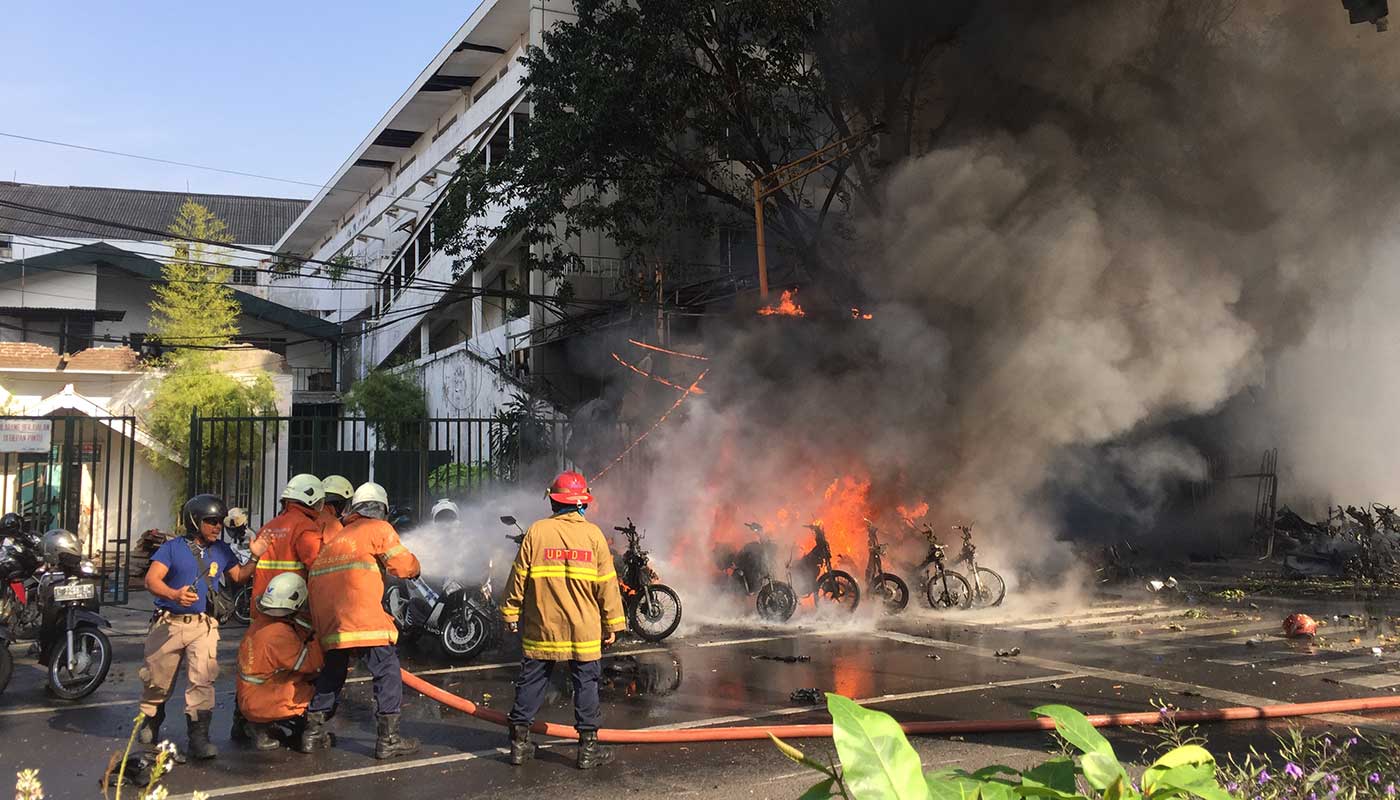Family of six bomb three Indonesian churches
Officials say the family had travelled to Syria before the suicide attack

A free daily email with the biggest news stories of the day – and the best features from TheWeek.com
You are now subscribed
Your newsletter sign-up was successful
Indonesian officials say that the family of six believed responsible for deadly suicide bombings on three Christian churches on Sunday belonged to an Islamic State-inspired terror network.
The co-ordinated attacks took place in the city of Surabaya, Indonesia’s second-largest city.
Investigators say that the parents belong to terrorist group Jamaah Ansharut Daulah, which lends its support to Isis in Indonesia, and that the family had recently returned from Syria.
The Week
Escape your echo chamber. Get the facts behind the news, plus analysis from multiple perspectives.

Sign up for The Week's Free Newsletters
From our morning news briefing to a weekly Good News Newsletter, get the best of The Week delivered directly to your inbox.
From our morning news briefing to a weekly Good News Newsletter, get the best of The Week delivered directly to your inbox.
Isis claimed responsibility for the bombings through its Amaq news agency, but the claim said there were only three attackers and made no mention of children.
Officials say that the first attack was carried out by the family’s two sons, aged 16 and 18, who rode motorcycles into the Santa Maria Catholic Church, before detonating explosives they were carrying.
The father, identified as Dita Futrianto, dropped off his wife and two daughters at the Diponegoro Indonesian Christian Church, where they blew themselves up.
“The girls – aged nine and 12 – had bombs strapped to them, as did their mother,” the BBC reports.
A free daily email with the biggest news stories of the day – and the best features from TheWeek.com
Futrianto then drove his car, packed with explosives, to the Surabaya Centre Pentecostal Church before detonating the bomb.
“Unexploded bombs found at two of the churches were safely detonated by authorities,” says The Washington Post.
Indonesian president Joko Widod called the bombings “cowardly actions” and said the attackers were “very barbaric and beyond the limit of humanity”.